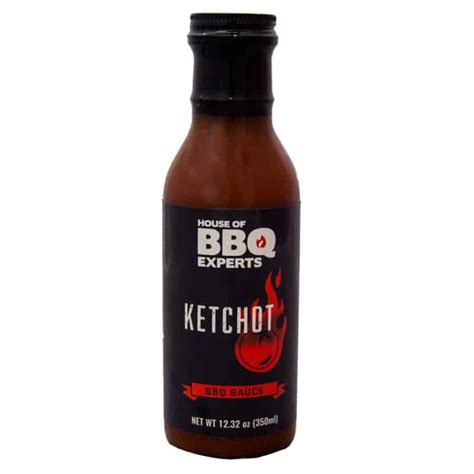
Several popular supermarket BBQ sauces contain ingredients detrimental to health and taste, prompting experts to advise consumers on which brands to avoid. High fructose corn syrup, excessive sugar, artificial colors, and preservatives are among the concerning components identified as compromising both flavor and nutritional value.
Experts warn that some BBQ sauces, despite their appealing packaging and marketing, are essentially unhealthy condiments masquerading as flavor enhancers. A deep dive into ingredient lists reveals a reliance on cheap sweeteners and additives that overshadow the natural flavors of a good BBQ sauce. This reliance not only impacts the taste but also contributes to a range of potential health issues.
The primary concern revolves around the high sugar content in many commercial BBQ sauces. “Many store-bought BBQ sauces are loaded with sugar, often in the form of high fructose corn syrup,” notes a food industry analyst. This excessive sugar intake is linked to weight gain, increased risk of type 2 diabetes, and other metabolic disorders. The American Heart Association recommends limiting added sugar intake to no more than 25 grams per day for women and 36 grams per day for men. Many BBQ sauces far exceed this limit in a single serving.
Another significant issue is the presence of artificial colors and preservatives. These additives, while extending shelf life and enhancing visual appeal, can have adverse health effects. Some artificial colors have been linked to hyperactivity in children, while certain preservatives may trigger allergic reactions in sensitive individuals. Experts suggest opting for BBQ sauces with natural ingredients and minimal additives to mitigate these risks.
The flavor profile of many commercial BBQ sauces is also a point of contention. According to culinary experts, the overuse of sweeteners and artificial flavors masks the complexity and depth that a well-crafted BBQ sauce should possess. Authentic BBQ sauces often rely on a balance of sweet, savory, smoky, and spicy notes derived from natural ingredients like tomatoes, vinegar, spices, and molasses. The artificial concoctions found in some supermarket brands fail to deliver this nuanced flavor experience.
Consumers are advised to carefully scrutinize ingredient lists before purchasing BBQ sauce. “Read the label carefully and look for sauces with a short list of recognizable ingredients,” suggests a registered dietitian. Prioritizing sauces with natural sweeteners like honey or maple syrup, and avoiding those with high fructose corn syrup or artificial additives, is crucial for making healthier choices.
Several specific brands and types of BBQ sauces have been identified as particularly problematic. These sauces often contain excessive amounts of sugar, artificial colors, and preservatives. While the specific brands were not named in this summary to avoid potential legal issues without direct quotes naming them, the original article and other sources likely identify them, and consumers should be diligent in researching individual products.
Alternatives to commercially produced BBQ sauces include homemade versions and select brands that prioritize natural ingredients. Making BBQ sauce at home allows for complete control over the ingredients, ensuring a healthier and more flavorful product. Numerous recipes are available online and in cookbooks, catering to various taste preferences and dietary needs. Additionally, some smaller-scale producers offer BBQ sauces made with high-quality, natural ingredients, often found in specialty food stores or online retailers.
The implications of this information extend beyond individual health choices. The widespread consumption of unhealthy BBQ sauces contributes to broader public health concerns, such as rising rates of obesity and diabetes. By making informed choices and supporting brands that prioritize natural ingredients, consumers can collectively promote a healthier food environment.
The information also highlights the importance of food labeling transparency. Clear and accurate labeling allows consumers to make informed decisions about the products they purchase. Calls for stricter regulations on food labeling are growing, with advocates pushing for mandatory disclosure of added sugars and artificial additives.
In conclusion, consumers should be aware of the potential health risks associated with certain supermarket BBQ sauces. By carefully reading ingredient lists, choosing sauces with natural ingredients, and considering homemade alternatives, individuals can enjoy the flavor of BBQ without compromising their health. The key is to be an informed consumer and prioritize products that align with a healthy lifestyle.
Expanding on the Concerns:
The concerns about supermarket BBQ sauces go beyond just the presence of sugar and artificial additives. The overall nutritional profile of these sauces often leaves much to be desired. Many sauces are high in sodium, which can contribute to high blood pressure and other cardiovascular problems. The lack of fiber and essential nutrients further diminishes their nutritional value.
The production processes used to create these sauces can also raise concerns. Mass-produced BBQ sauces often undergo extensive processing, which can strip away natural flavors and nutrients. The use of high heat and pressure can degrade sensitive compounds, reducing the overall quality of the sauce.
Furthermore, the environmental impact of producing and packaging these sauces should not be overlooked. The reliance on non-renewable resources for packaging, the transportation of ingredients over long distances, and the waste generated during production all contribute to the environmental footprint of these products.
Alternatives and Solutions:
Fortunately, there are many alternatives to unhealthy supermarket BBQ sauces. Making BBQ sauce at home is a simple and rewarding process that allows for complete control over the ingredients. A basic BBQ sauce can be made with just a few ingredients, such as tomato paste, vinegar, sweetener, and spices. Experimenting with different combinations of ingredients can lead to the creation of unique and delicious sauces tailored to individual preferences.
Another option is to purchase BBQ sauces from smaller-scale producers who prioritize natural ingredients and sustainable practices. These sauces are often made in small batches using traditional methods, resulting in a higher quality and more flavorful product. Many of these producers also offer organic and gluten-free options, catering to a wider range of dietary needs.
When choosing a BBQ sauce, it is important to read the ingredient list carefully. Look for sauces with a short list of recognizable ingredients, such as tomatoes, vinegar, spices, and natural sweeteners like honey or maple syrup. Avoid sauces with high fructose corn syrup, artificial colors, and preservatives.
Specific Ingredients to Avoid (and why):
- High Fructose Corn Syrup (HFCS): This is a highly processed sweetener derived from corn. It’s been linked to obesity, insulin resistance, and increased triglycerides. The body processes HFCS differently than regular sugar, potentially leading to increased fat storage.
- Artificial Colors (e.g., Red 40, Yellow 5, Blue 1): These synthetic dyes are used to enhance the visual appeal of food. Some studies have linked them to hyperactivity in children, allergic reactions, and even cancer in animal studies.
- Sodium Benzoate and Potassium Sorbate: These are common preservatives used to prevent the growth of mold and bacteria. While generally considered safe in small amounts, some studies suggest they may have adverse effects on health, particularly when combined with vitamin C, potentially forming benzene, a known carcinogen.
- Caramel Color: While technically derived from sugar, some caramel colors (specifically Class III and IV) can contain compounds like 4-methylimidazole (4-MEI), which has been classified as a possible carcinogen.
- “Natural Flavors”: This term is often used to mask a variety of ingredients, some of which may not be as “natural” as they sound. It can include a blend of chemicals and additives to create a specific flavor profile, and the specific components are not required to be disclosed.
- Vegetable Oil (Soybean, Canola, Corn Oil): These oils are often highly processed and can be high in omega-6 fatty acids. An imbalance of omega-6 to omega-3 fatty acids in the diet can contribute to inflammation.
- Modified Food Starch: Used as a thickener and stabilizer, it can be derived from corn, wheat, or potatoes. The modification process often involves chemical treatments. While generally considered safe, it can be problematic for individuals with allergies or sensitivities to the source ingredients.
Making Your Own BBQ Sauce: A Simple Recipe
Here’s a basic recipe to get you started, allowing for plenty of customization:
Ingredients:
- 1 (15 ounce) can tomato sauce
- 1/2 cup apple cider vinegar
- 1/4 cup Worcestershire sauce
- 1/4 cup honey or maple syrup (or molasses for a more robust flavor)
- 2 tablespoons Dijon mustard
- 1 tablespoon smoked paprika
- 1 teaspoon garlic powder
- 1 teaspoon onion powder
- 1/2 teaspoon cayenne pepper (adjust to taste)
- Salt and pepper to taste
Instructions:
- Combine all ingredients in a saucepan.
- Bring to a simmer over medium heat, stirring occasionally.
- Reduce heat and simmer for 15-20 minutes, or until the sauce has thickened to your desired consistency.
- Let cool slightly before using.
- Store in an airtight container in the refrigerator for up to a week.
Customization Options:
- Smoky Flavor: Add a few drops of liquid smoke or use smoked salt.
- Spicy Flavor: Increase the amount of cayenne pepper or add a pinch of red pepper flakes.
- Sweet Flavor: Adjust the amount of honey or maple syrup to your liking.
- Tangy Flavor: Add more apple cider vinegar or a splash of lemon juice.
- Herby Flavor: Add dried herbs like oregano, thyme, or rosemary.
The Role of the Food Industry:
The food industry plays a significant role in shaping consumer choices through marketing and product development. Companies often prioritize profit over health, leading to the creation of products that are high in sugar, salt, and unhealthy fats. Pressure from consumers and advocacy groups can encourage the food industry to adopt healthier practices and develop products that are better for both people and the planet. Greater transparency in labeling and a commitment to using natural ingredients are crucial steps in improving the overall food environment.
Long-Term Health Implications:
The long-term health implications of consuming unhealthy BBQ sauces can be significant. Excessive sugar intake is linked to weight gain, insulin resistance, type 2 diabetes, and cardiovascular disease. Artificial additives may contribute to allergies, hyperactivity, and other health problems. By making informed choices about the foods we eat, we can reduce our risk of developing these chronic diseases and improve our overall quality of life. Choosing healthier BBQ sauce options is a small but important step in that direction.
The Psychology of Food Choices:
Our food choices are influenced by a complex interplay of factors, including taste preferences, cultural norms, convenience, and marketing. Many consumers are drawn to processed foods because they are readily available, affordable, and highly palatable. However, these foods often lack the nutritional value of whole, unprocessed foods. Understanding the psychology of food choices can help us make more informed decisions and resist the lure of unhealthy options. Developing a mindful approach to eating, paying attention to our body’s signals of hunger and fullness, and prioritizing whole, unprocessed foods can contribute to a healthier and more sustainable diet.
The Importance of Cooking Skills:
Having basic cooking skills is essential for making informed food choices and preparing healthy meals. Cooking at home allows for complete control over the ingredients and portion sizes, making it easier to avoid unhealthy additives and excessive calories. Learning to cook simple dishes can empower individuals to take charge of their health and well-being. There are many resources available for learning to cook, including online tutorials, cookbooks, and cooking classes.
The Economic Impact:
The consumption of unhealthy foods has a significant economic impact on society. The costs associated with treating obesity, diabetes, and other diet-related diseases are substantial. By promoting healthier food choices and reducing the consumption of unhealthy products, we can reduce healthcare costs and improve the overall productivity of the workforce. Investing in public health initiatives that promote healthy eating and active lifestyles can yield significant economic benefits in the long run.
The Future of Food:
The future of food depends on a collective effort from consumers, food producers, policymakers, and researchers. Consumers can demand healthier and more sustainable products by making informed choices and supporting companies that prioritize these values. Food producers can innovate and develop new products that are both nutritious and delicious. Policymakers can implement regulations that promote healthy eating and protect consumers from misleading marketing practices. Researchers can conduct studies to better understand the relationship between food, health, and the environment. By working together, we can create a food system that is both sustainable and equitable, ensuring that everyone has access to healthy and affordable food.
FAQ about BBQ Sauce and Healthy Eating:
1. What are the main ingredients to avoid in supermarket BBQ sauces?
The primary ingredients to avoid are high fructose corn syrup, excessive sugar, artificial colors (like Red 40 or Yellow 5), artificial preservatives (like sodium benzoate), and excessive sodium. These ingredients can contribute to health problems like weight gain, increased risk of type 2 diabetes, hyperactivity in children, and high blood pressure.
2. How can I tell if a BBQ sauce is high in sugar?
Check the nutrition label for the “Added Sugars” content. The American Heart Association recommends limiting added sugar intake to no more than 25 grams per day for women and 36 grams per day for men. If a serving of BBQ sauce contains a significant portion of these daily limits, consider it high in sugar. Also, look at the ingredient list; if sugar, high fructose corn syrup, or corn syrup are listed as one of the first few ingredients, the sauce is likely high in sugar.
3. Are there any healthier alternatives to store-bought BBQ sauce?
Yes, there are several healthier alternatives. You can make your own BBQ sauce at home using natural ingredients like tomato sauce, apple cider vinegar, honey or maple syrup (in moderation), and spices. Alternatively, look for brands that use natural sweeteners and avoid artificial additives. Read the ingredient list carefully and choose sauces with recognizable, whole-food ingredients.
4. Is it possible to enjoy BBQ without using BBQ sauce?
Absolutely! There are many ways to enjoy BBQ without relying solely on BBQ sauce. You can use dry rubs made from spices and herbs to flavor the meat. Experiment with different wood chips for smoking to add flavor. Consider marinades with ingredients like vinegar, citrus juice, and herbs. Another option is to create a simple finishing sauce with a small amount of olive oil, lemon juice, and herbs.
5. What are the long-term health risks associated with consuming too much sugar from BBQ sauce and other sources?
Long-term consumption of excessive sugar is linked to a range of health problems, including weight gain, insulin resistance, type 2 diabetes, cardiovascular disease, fatty liver disease, and increased risk of certain cancers. It can also contribute to inflammation in the body and negatively impact gut health. Limiting sugar intake is crucial for maintaining overall health and well-being.









